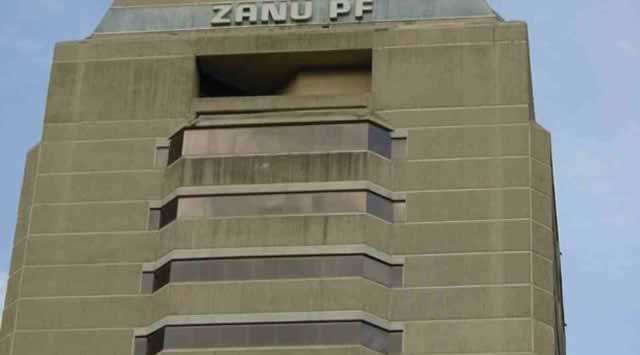Zanu-PF dominates: UK think-tank

 Felex Share Herald Reporter—
Felex Share Herald Reporter—
Major British think-tank Chatham House says Zanu-PF is the dominant force in Zimbabwe’s politics and will remain so for many years to come. As such, the organisation said in a recent report, Zimbabwe and Western countries should have constructive engagement to end illegal sanctions imposed on the country as well as hold a “pragmatic dialogue” that recognises mutual interests and responsibilities.
London-based Chatham House’s mission is to analyse and promote the understanding of major international issues and current affairs.
In the report titled: “Zimbabwe International Re-engagement: The Long Haul to Recovery”, Chatham House said opposition parties and civil society needed renewal and reform to be effective.
The report assessed political and economic challenges and opportunities facing Zimbabwe and offered recommendations on normalising relations with the West though it chose to be mum on the west’s ruinous economic sanctions regime.
“Sustainability improved relations will depend on the new government’s track record on good governance and human rights, but the report recognises that, although the electoral legitimacy debate will continue to divide Zimbabweans, the reality is that Zanu-PF, which was the senior partner in the Government of National Unity, is the dominant force in politics and — despite its internal frictions — will remain so for some time to come,” Chatham House said.
The report said Zimbabwe’s economy was not a “total disaster” as propagated by the some media houses, with many institutions and businesses functional.
“Although Zimbabwe faces an economic crisis and is in some ways an ‘emergency economy’ the picture is not one of total disaster,” Chatham House said.
“There are numerous institutions, organisations and businesses that are functioning and doing so through smart strategies, competent management, good leadership and partnerships.
For Zimbabwe’s economy to survive and thrive; the Government will have to adopt the best practice template in a national consultative, multiple-stakeholder approach.
“Zimbabwe’s re-entry into the global system brings with it the challenge and opportunity of engaging potential investors in terms not of ideological divisions, but of competitive advantage,” it said.
Chatham House said the Zimbabwe Agenda for Sustainable Socio- Economic Transformation was produced in consultation with the business sector, but the country needed a “complementary document outlining key immediate challenges to implementing the vision”.
It noted that Zimbabwe could not be examined in isolation from the regional context. “Zimbabwe and neighbouring countries are advocating a regional renaissance and promoting the ‘region-brand’” it said.
“But to ensure that these are not just rhetorical aspirations, Southern African governments should pay as much attention to human development issues as they do to GDP figures and focus on regional pro-poor policies.”








Comments